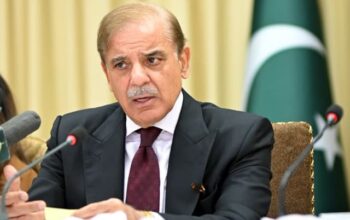By Staff Reporter
ISLAMABAD: The intricate process of policymaking is currently centered around a contentious issue: tobacco taxation. As the government delves into its budget-making process, a fierce debate has emerged. Policymakers are grappling with a critical decision—whether to focus on the country’s fiscal framework or to prioritize a health-driven agenda by increasing taxes on the tobacco sector.
The dilemma is not without its complexities. On one hand, there’s a need to define clear objectives for policy interventions. On the other, there’s the challenge of analyzing the impact of such policies thoroughly before reaching a final verdict.
Over the past two years, the government has aggressively raised the Federal Excise Duty (FED) on cigarettes by more than 200 percent. Reports and data indicate a decline in cigarette consumption. However, the data, primarily reflecting the output of Large-Scale Manufacturing (LSM) and two major multinationals, does not paint the full picture. It overlooks the unrecorded hefty volume sold by illicit cigarette manufacturers, suggesting that consumption may not have reduced but shifted from the legitimate industry to the untaxed, illegal market.
The absence of an official study or database to verify the actual trend in cigarette consumption leaves policymakers in a quandary. Decisions are being made in a vacuum, without solid evidence to ascertain whether consumption has truly declined or merely transitioned from the tax-compliant sector to tax-evading manufacturers.
Amidst this uncertainty, allegations have surfaced against certain NGOs. These organizations are accused of using the health agenda as a pretext to inadvertently bolster the illicit cigarette market. Their focus appears to be solely on the tax-paying sector, advocating for increased taxation while seemingly ignoring the tax-evading entities that remain off their radar.
The business of tax evasion in the cigarette industry has become increasingly profitable, particularly when those involved are allegedly connected to political elites, making enforcement efforts difficult. This situation poses a significant threat to the national exchequer. A recent IPSOS study revealed that the share of illicit cigarettes now exceeds that of the tax-paying sector, leading to substantial revenue losses estimated at Rs300 billion annually.
In stark contrast, the legitimate tobacco industry has been a consistent contributor to the national treasury, with payments of Rs148 billion in 2021-22 and Rs173 billion in 2022-23. The industry is expected to contribute Rs263 billion in the current fiscal year. Furthermore, the legitimate sector has shown a commitment to adhering to government regulations, including the implementation of the Track and Trace System (TTS), which is designed to combat tax evasion and ensure compliance.
This compliance is in sharp contrast to the illicit sector’s flagrant disregard for the law. The disparity in regulatory enforcement not only undermines the rule of law but also places the legitimate industry at a competitive disadvantage. It challenges the principles of fair trade and market competition, creating an uneven playing field where illegal operators benefit from their non-compliance.
To rectify this issue, law enforcement agencies must undertake a nationwide crackdown on illicit cigarettes. This action should be part of a comprehensive strategy that includes strengthening governance structures, enhancing regulatory frameworks, and fostering collaboration between the government, legitimate industry players, and civil society. Only through a concerted and holistic approach can Pakistan hope to resolve the fiscal-health dilemma posed by tobacco taxation, ensuring that public health objectives and fiscal responsibilities are balanced in a manner that serves the nation’s best interests.
The case of tobacco taxation in Pakistan is a microcosm of the broader challenges faced by policymakers worldwide. It underscores the need for clear objectives, evidence-based decision-making, and robust enforcement mechanisms.
Copyright © 2021 Independent Pakistan | All rights reserved




